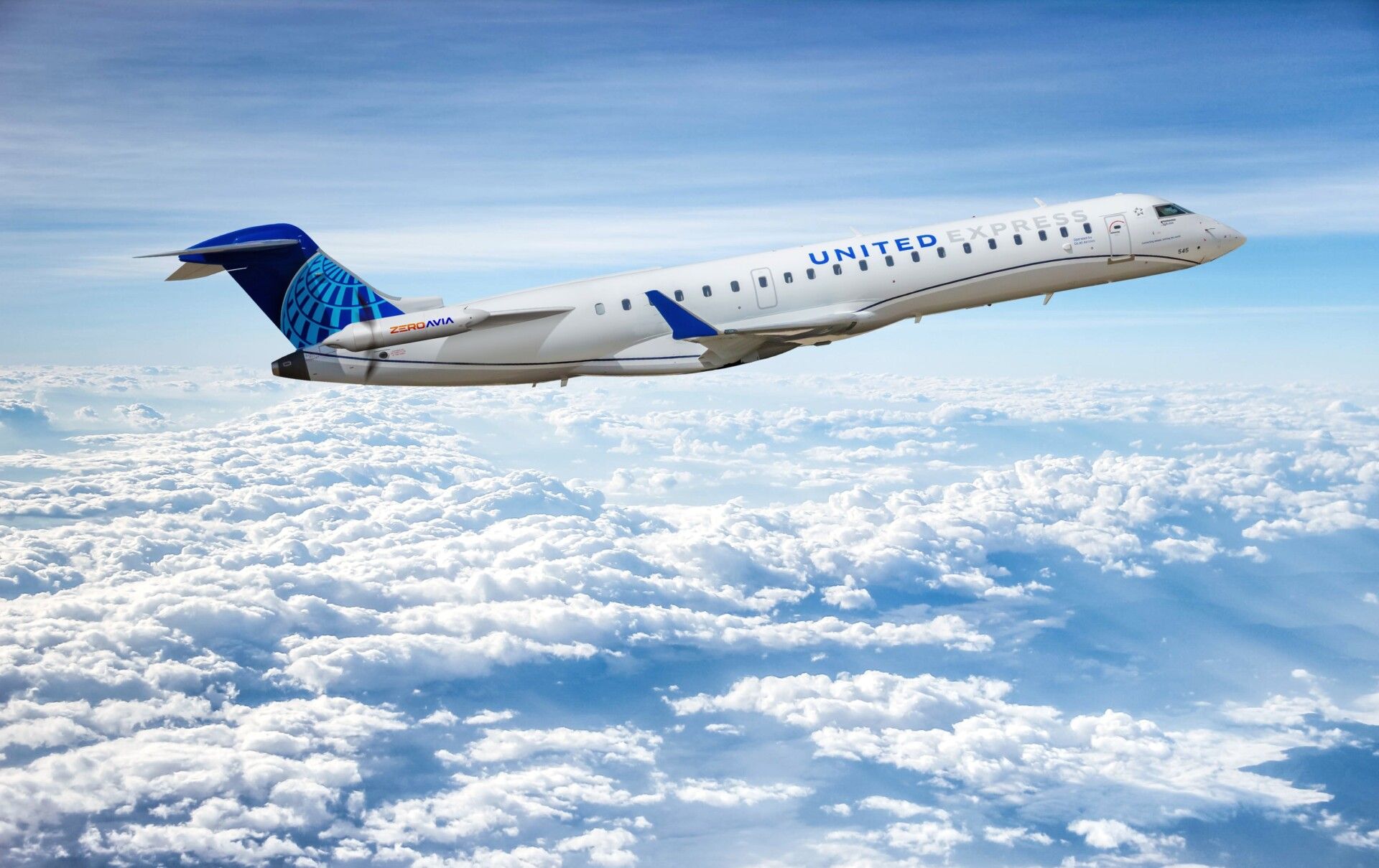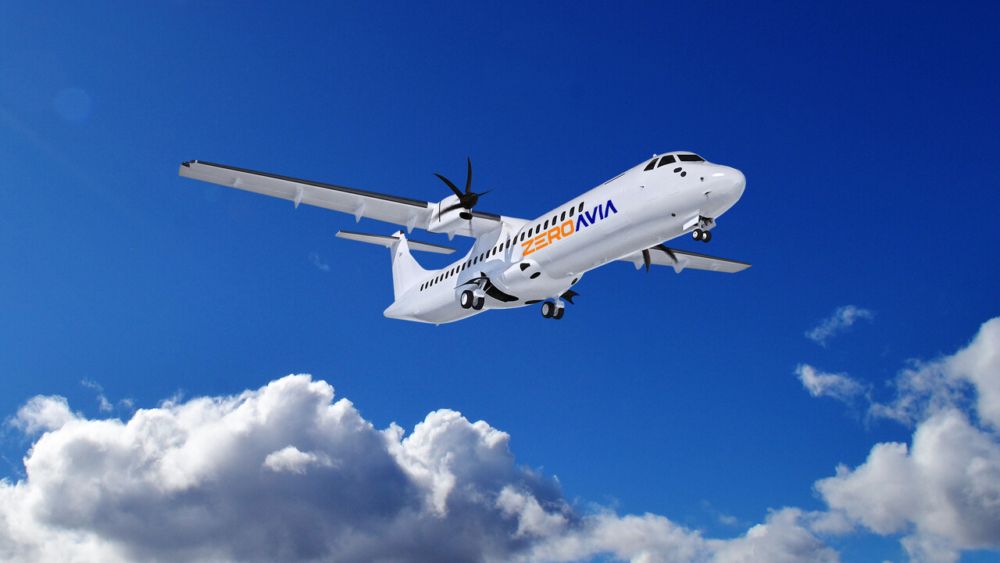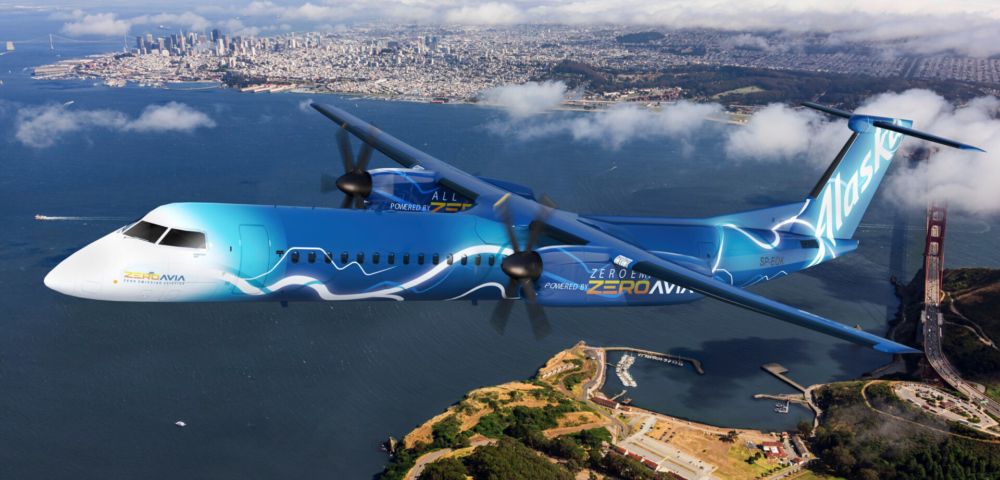Hydrogen and electric solutions are set to overhaul aviation requirements in the coming decades. There has been significant technological progress in the two fields in recent years. As a result, United Airlines has today shared that it has become the largest carrier to invest in zero-emission engines for its regional planes amid an equity stake in ZeroAvia, which completed the world's first hydrogen fuel cell-backed flight of a commercial-grade aircraft last year.
Environmental goals
The Chicago-based carrier highlights that this move is part of its mission to reduce its greenhouse gas emissions "100% by 2050." Notably, the company seeks to achieve this target without the reliance on standard carbon offsetting schemes.
With the investment, United is set to purchase up to 100 of ZeroAvia's ZA2000-RJ 100% hydrogen-electric engines. The firm sees its regional aircraft, such as the CRJ-550, as great suitors for the model. The airline flew the first of the type in October 2019. There has been great feedback on the 50-seater for its ability to provide a premium cabin experience on short-haul routes. Altogether, the plane helps the operator connect smaller towns within the United States.
Grand prospects
These ZA2000-RJ engines use electricity formed by a chemical reaction in a fuel cell to power an electric motor. As a result, no fossil fuels are burnt, and no carbon emissions are released into the atmosphere.
"Hydrogen-electric engines are one of the most promising paths to zero-emission air travel for smaller aircraft, and this investment will keep United out in front on this important emerging technology. United continues to look for opportunities to not only advance our own sustainability initiatives but also identify and help technologies and solutions that the entire industry can adopt." - United Airlines CEO Scott Kirby, via company statement.
ZeroAvia has been making significant steps in the push for hydrogen-electric aviation. This summer, it announced that it was scaling up its program to include larger aircraft after raising an additional $13 million.
The British/American outfit has a target to introduce passenger flights between the United Kingdom and the Netherlands as soon as 2024. The company also recently shared that it looks to influence regional flying in North America by 2026. United's aircraft will be retrofitted with the ZA2000-RJ by 2028.
“This support by United, alongside our other forward-thinking partners, demonstrates the importance of hydrogen-electric propulsion in the future of sustainable flight. The United Express routes powered by hydrogen-electric aircraft will be enabling large numbers of passengers to take zero-emission flights well within this decade." - ZeroAvia founder and CEO Val Miftakhov.
Stay informed: Sign up for our daily and weekly aviation news digests.
One for the future
United isn't the only US airline that sees potential in ZeroAvia's engines. For instance, Alaska Airlines recently shared that it is partnering with the company to develop a 3MW+ hydrogen-electric powertrain for 76-seat zero-emission planes. The Seattle-based carrier is incorporating the ZA200 into its Q400 aircraft.
Nonetheless, United has shown that it is keen to be at the forefront of innovation this decade. This hydrogen-electric initiative follows another exciting announcement earlier this year when the carrier shared that it ordered up to 50 Boom Supersonic aircraft.
Overall, there is set to be all change in the coming decades amid these modern breakthroughs. While sustainable aviation fuels (SAF) will help the industry transition into a greener ecosystem, electricity and hydrogen are expected to be long-term solutions. Even on longer routes, hydrogen may overhaul operations amid the likes of Airbus being focused on introducing new aircraft in this sector.
What are your thoughts about United’s investment in ZeroAvia? How do you feel about this move by the airline? Let us know what you think of the initiative and its prospects in the comment section.



